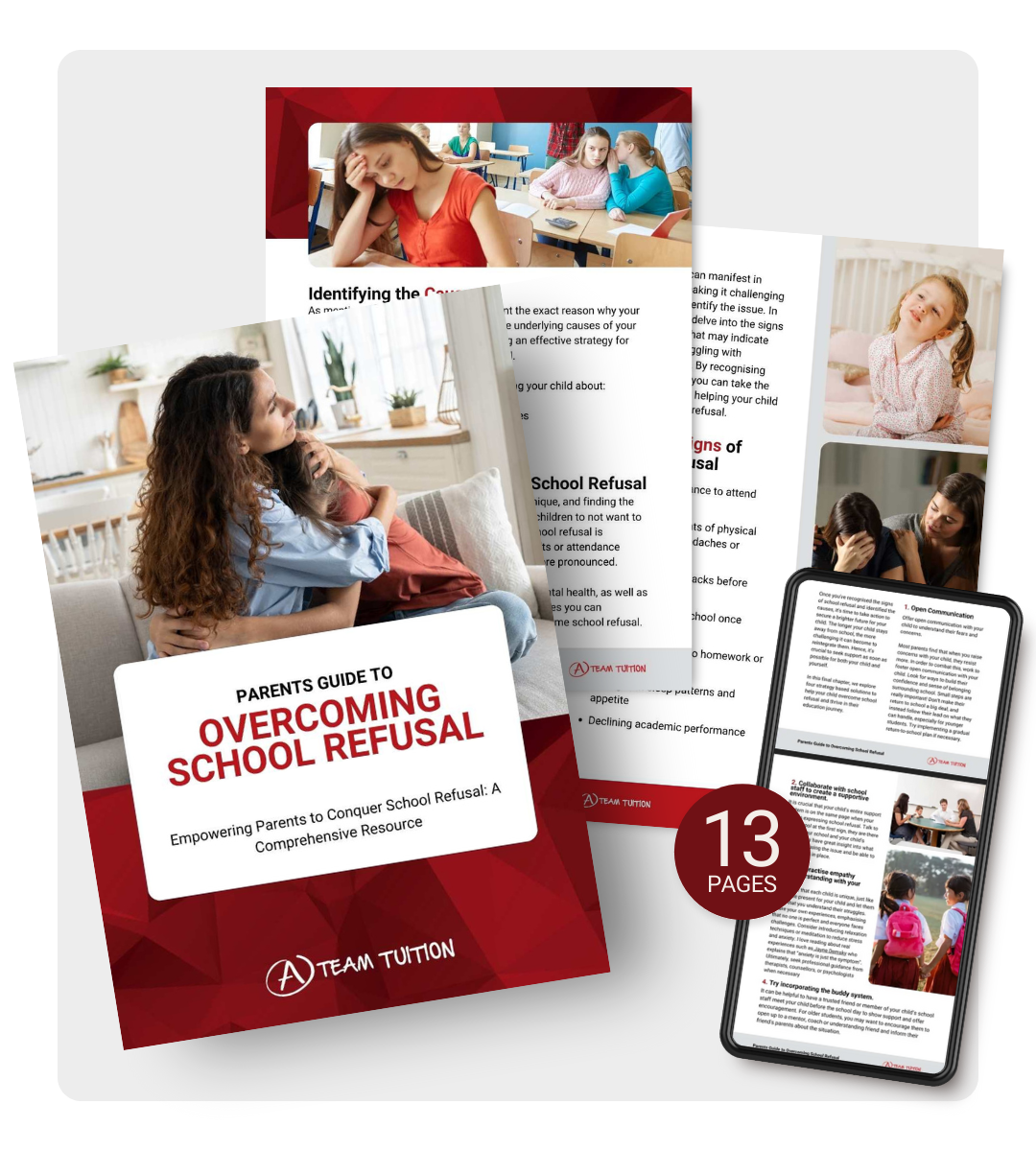Is your child suddenly refusing to attend school?
How to overcome school refusal
Our FREE Guide to Overcoming School Refusal dives into the psychology behind your child refusing to attend school, provides practical strategies and offers manageable tips you can implement today!
Rekindle Your Child's Confidence with Our School Refusal Guide
We're here to offer a helping hand!
Sunday evenings shouldn't be haunted by your child's anxiety about school. We recognise the emotional toll of school refusal on both parents and their children. Our School Refusal Guide is broken into the three sections below, providing you with vital tools to help you understand, support, and rebuild your child's enthusiasm for school.
Understanding School Refusal
Our School Refusal Guide is your comprehensive resource for understanding and conquering the emotional challenge of School Refusal. It serves as a lifeline for parents seeking to support their children through these trying times.
Deciphering the Signs
School refusal can manifest in various ways, affecting both primary and high school-aged children. It is characterised by a consistent reluctance to attend school, often accompanied by high levels of distress. Our guide provides valuable insights into the causes and solutions for this problem, helping you navigate the intricacies of school refusal.
Taking Control of the Future
Recognising the signs of school refusal is the initial step in addressing the issue. From anxiety about teachers to social isolation and feigned illnesses, our guide helps you identify these signals and take immediate action. School refusal's consequences, academically and legally, are also explained within. It's time to regain control and secure a brighter future for your child.
Discover the signs, learn effective strategies, and, most importantly, regain your child's self-assured smile. Don't let school refusal dim their educational future or burden your home any longer. Download our guide today and unlock the path to a happier, more confident child.
GET OUR FREE GUIDE TO HANDLING SCHOOL REFUSAL


